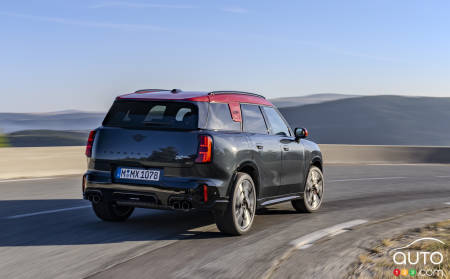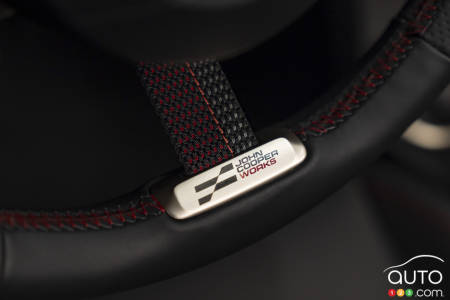• Mini is committed to its John Cooper Works models, even in the electric age.
Mini has always approached vehicle design with the minimum requirement that it models must provide a high level of driving pleasure. But since 2002, when the first John Cooper Works variant appeared, performance is achieved through Minis bearing the letters JCW.
Mainly, those models do that via more powerful engines. With electrification on the horizon, some have worried that Mini might simply produce electric vehicles and essentially, keep the driving pleasure but drop the high performance.
Clearly though, Mini is committed to its John Cooper Works models and to high performance, even in the electric age.
Sepaking with Insideevs, Mike Peyton, Mini VP for the Americas, and Christian Wehner, Global Product Manager for the brand, confirmed Mini’s commitment to the JCW brand, even if the division goes all-electric.
“John Cooper Works is so essential for our brand,” Wehner explained. “Of course, our objective is always to bring John Cooper Works into the electric era.”
Peyton added that “there are definitely some things in the works, because when you think about a more performance-oriented EV, that’s a nice fit with JCW."
The challenge is to make those future electric JCW models as fun to drive as the current versions. The big challenge within that challenge? Dealing with the weight of the batteries. Said Wehner, “the idea is not to have the best possible acceleration, but to find the right balance between performance and agility.”
Sounds like the same script Mazda read from at the Tokyo Motor Show when it discussed the future MX-5.

Cohabitation
In the short term, anyways, the arrival of electric JCW versions doesn’t mean that gasoline engines will disappear from the range. Until the BMW Group reaches 50-percent electrification by 2030, Wehner says the company will continue to produce four combustion engines, alongside four electric motors, for its next JCW models.
“We’ve been talking about being more electrified or being electrified by the early 2030s. That still means we’ve got several years, particularly in North America, as well, because the demand is there for gasoline JCWs.”
- Mike Peyton



